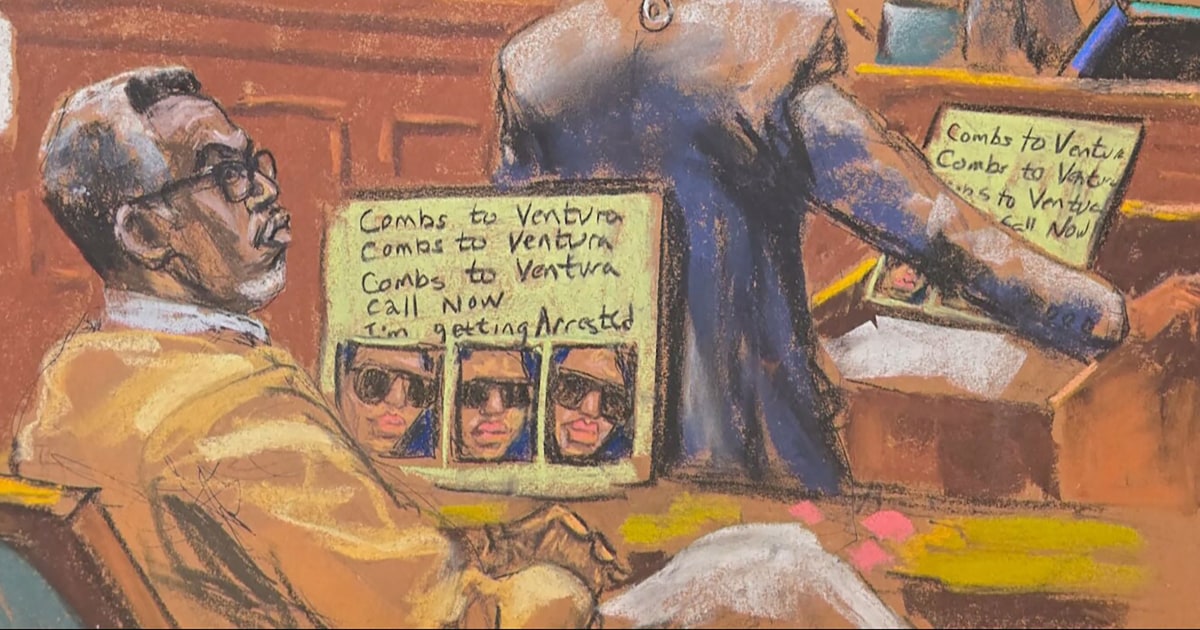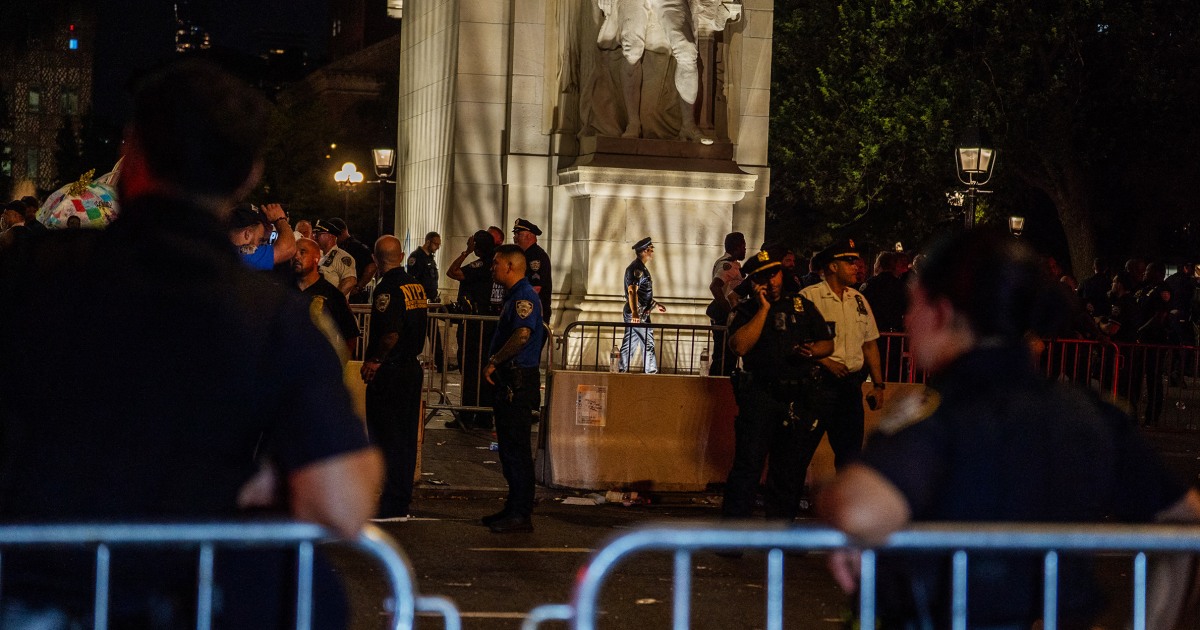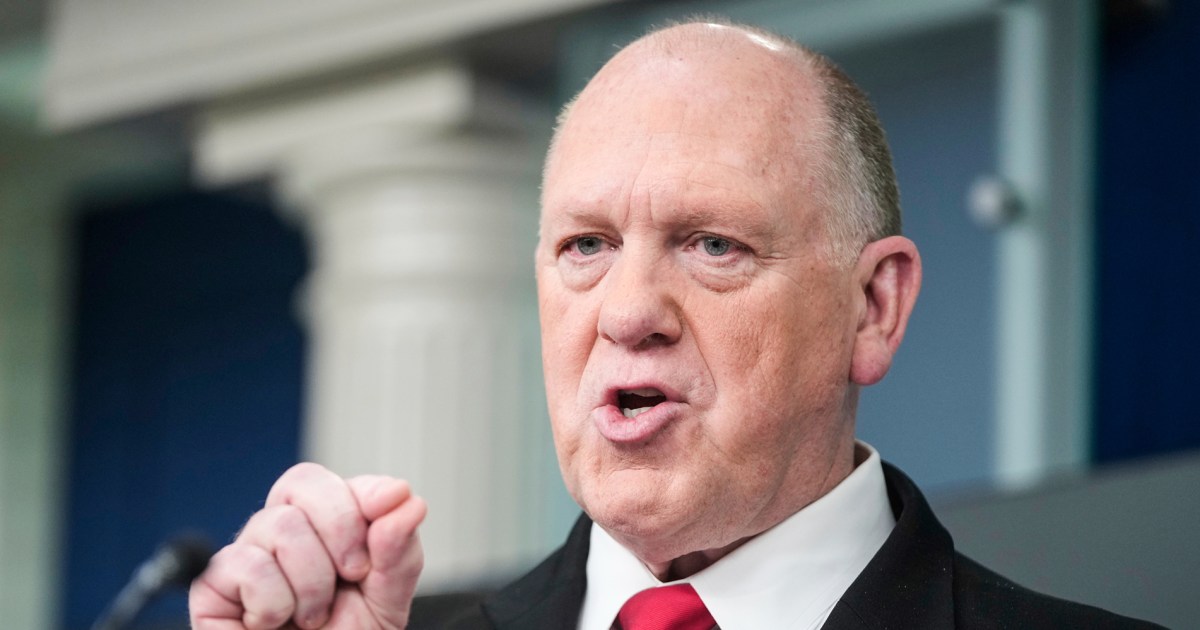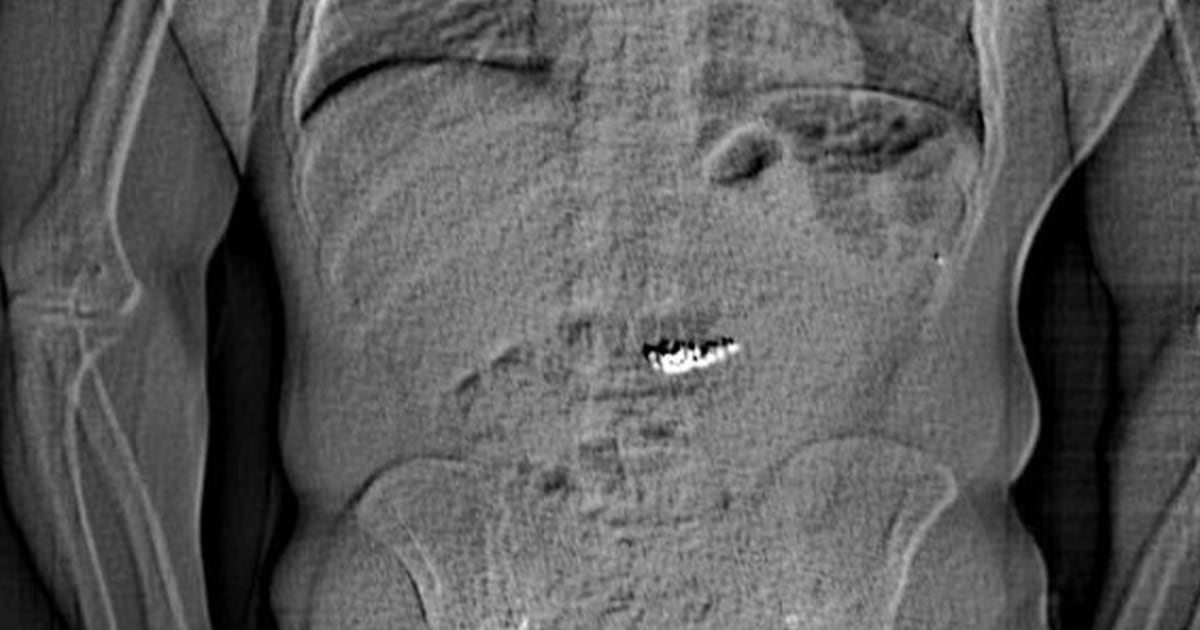A girl recovering from a rare brain tumor celebrated her 11th birthday on Sunday, hundreds of miles away from everything she’s known — her friends at school, her community at church, her home.
She’s one of four U.S. citizen children who were sent to Mexico from Texas three months ago when immigration authorities deported their undocumented parents.
Fearing for their safety after the mixed-immigration status family was taken to an area in Mexico that’s been known for kidnapping U.S. citizens, they haven’t given up on being able to return to the U.S. — primarily to continue the girl’s medical treatment.
On Friday morning, the family is traveling to Monterrey to meet with members of the Congressional Hispanic Caucus. They hope that sharing their immigration plight motivates legislators to advocate for their return under humanitarian parole, according to a family representative.
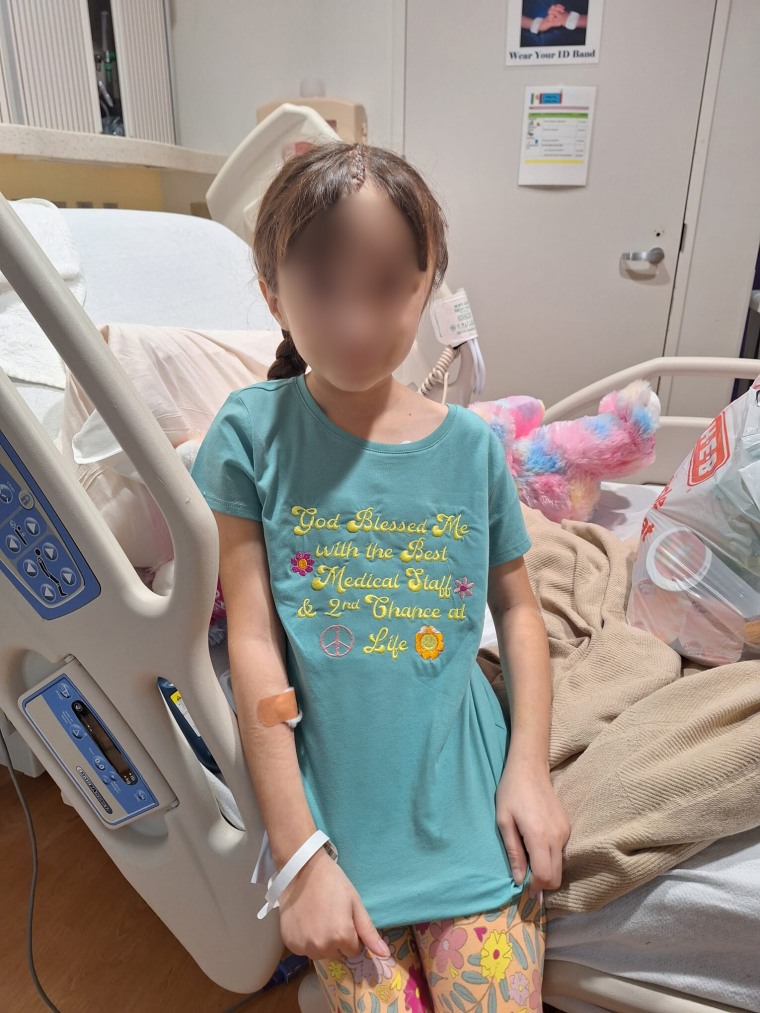
“Pressure from the public about the deportation of vulnerable United States citizen children really is effective, and members of Congress are answering that call,” Rochelle Garza, president of the Texas Civil Rights Project, the legal advocacy and litigation organization representing the family, told NBC News Thursday.
Democratic Reps. Adriano Espaillat of New York and Sylvia Garcia and Joaquin Castro, both of Texas, are set to meet with the family, according to a spokesperson from the Texas Civil Rights Project.
“It’s important that the public continue paying attention to this but also continue engaging and encouraging members of Congress to take action,” Garza said.
The girl’s mother first told NBC News about the family’s ordeal in March. The case got the attention of several other lawmakers in Congress including Democratic Sens. Cory Booker of New Jersey and Alex Padilla of California as well as Rep. Al Green, D-Texas.
Since then, five other similar cases, including a mother who was deported to Honduras last month with her two U.S. citizen children, one of which is a 4-year-old boy with Stage 4 cancer, have become public.
“It would not surprise me if this were much more systemic than what we are currently seeing,” Garza said.
How it all started
The mother previously told NBC News that on Feb. 3 the family was driving from the Rio Grande Valley, Texas, area where they lived, to Houston, where their daughter’s specialist doctors are based, for an emergency medical checkup.
On the way there, they stopped at a stateside immigration checkpoint, one they have passed through multiple times. The parents were equipped with letters from their doctors and lawyers to show the officers at the checkpoint.
But immigration authorities arrested the parents after they were unable to show legal immigration documentation. According to their attorney, Daniel Woodward, other than lacking “valid immigration status in the U.S.,” the parents have “no criminal history.” He added the parents were in the process of obtaining T visas, a temporary immigration benefit for victims of human trafficking.
Five of their children, ages 15, 13, 11, 8 and 6 — four of whom are U.S. citizens — were with them when they were arrested. The parents and the children were taken to a detention facility, where they spent 24 hours before they were placed in a van and dropped on the Mexico side of a Texas bridge on Feb. 4.
NBC News is not publishing the family members’ names for safety reasons.
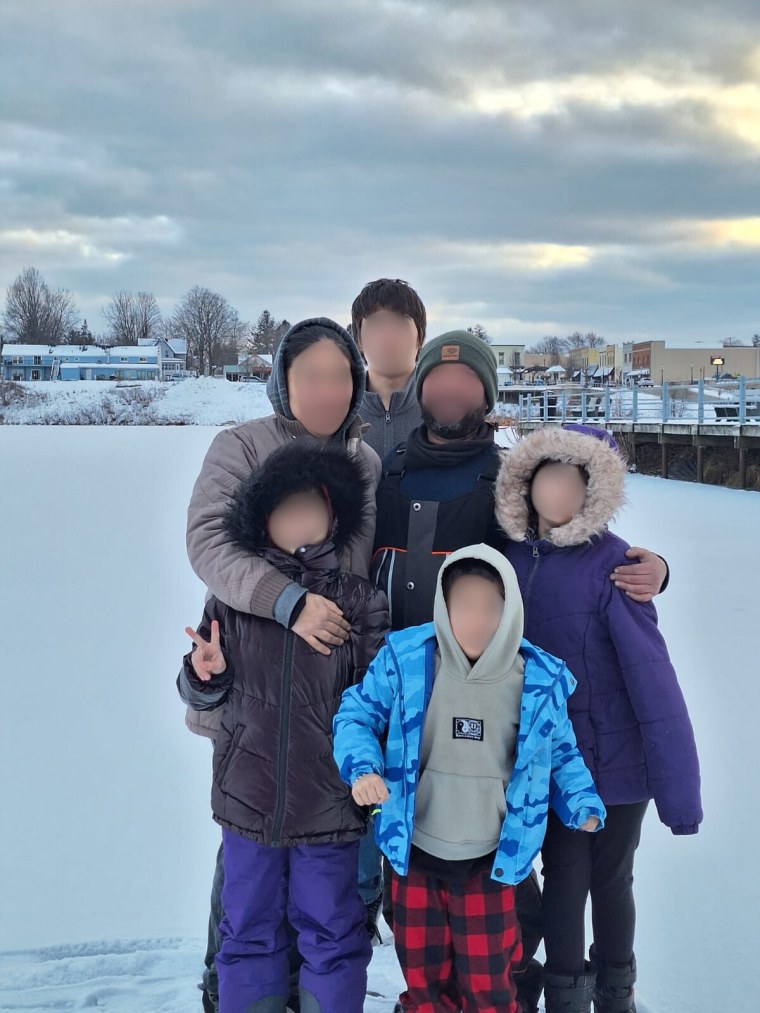
Attorneys for the family filed a complaint with the Department of Homeland Security’s Office of Civil Rights and Civil Liberties in March requesting a probe into abuses they say the family faced in U.S. detention. In the filing, they also requested immigration authorities grant humanitarian parole to the undocumented parents, the girl and one of her siblings.
But that DHS office, which protected the civil rights of both immigrants and U.S. citizens, was dismantled shortly after the attorneys filed the complaint — forcing them to re-file it with the Office of Inspector General at the Department of Health and Human Services. They have not yet received a response.
A DHS spokesperson previously told NBC News that reports of the family’s situation are “inaccurate” and declined to speak on the specifics of the case citing privacy reasons. They said in a statement that when “someone is given expedited removal orders and chooses to disregard them, they will face the consequences.”
In response to a similar but different case involving the removal of U.S. citizen children in connection to their mother’s deportation, DHS Assistant Secretary Tricia McLaughlin said in a statement Thursday: “The narrative that DHS is deporting American children is false and irresponsible reporting,” adding that immigration authorities ask mothers if they wish to be removed with their children or if they want the children to be placed in the safe custody of someone the parent designates.
McLaughlin added that undocumented parents can “take control of their departure” by using the CBP Home app, the Trump administration’s self-deportation app.
Speaking from Mexico in March, the mother of the 11-year-old said in a video message in Spanish provided to NBC News that she and her husband, when they were detained, “faced the worst decision, an impossible one, to be permanently separated from our children or to be deported together.”
When undocumented parents of U.S.-born children are picked up by immigration authorities, they face the risk of losing custody of their children. Without power-of-attorney documents or guardianships outlining who will take care of the children left behind, the children can go into the U.S. foster care system, making it harder for parents to regain custody of their children in the future.
Making the case for humanitarian parole
Just after her birthday, the girl had her first medical checkup in Monterrey this week.
Denisse Molina, a humanitarian outreach coordinator at the Texas Civil Rights Project, said it took her “two exhausting days, countless phone calls, and being bounced between hospital departments” to secure a medical appointment and schedule an MRI for the girl.
“No one—especially a child in need — should have to fight this hard just to access essential care,” Molina told NBC News in a statement Thursday.
While this temporary solution is bringing the family some relief, regular medical checkups are critical, according to the child’s mother and the family’s advocates.
The child was diagnosed with the brain tumor last year and underwent surgery to remove it, the mother said after learning of the diagnosis through translators. But Woodward said that since contacting the girl’s doctors and obtaining her medical records in the family’s pursuit to obtain humanitarian parole, she found out the cause of the tumor was an “unnamed ‘novel’ condition.”
Few medical specialists can effectively monitor these kinds of cases; the girl’s U.S. doctors are among those with the necessary expertise. The girl needs scans and checkups every three months, her doctors told the Texas Civil Rights Project.
The surgery that saved the girl’s life last year left her with some lasting side effects. The swelling on her brain is still not fully gone, her mother said in March, causing difficulties with speech and mobility of the right side of her body.
Before the family was removed from the U.S., the girl was routinely checking in with doctors monitoring her recovery, attending rehabilitation therapy sessions and taking medication to prevent convulsions.
In Mexico, the family has been able to enroll four of their children in school while they get ready to apply for humanitarian parole later this month at the U.S. Citizenship and Immigration Services.
According to the USCIS website, applicants may demonstrate urgency by establishing a reason to be in the U.S. that calls for immediate action, including critical medical treatment, or the need to visit, assist or support a relative who is ill.
“Our hope is that members of Congress will learn about this particular case and support our request for humanitarian parole for the family,” Garza said.



